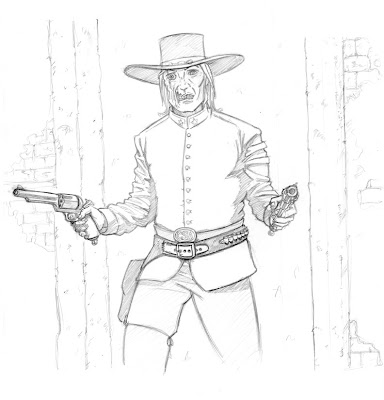Four Days, Three Armies, and a Great Read
As usual, I am always looking for something new to read, but I am often disappointed. I feel like written material is now taking a back seat to visual material. Odd for me to say as my professional background is film and animation production. Most of the time I have at least two books going at the same time, usually something more scholarly, historic, perhaps practical, or theoretical, and then something in the fantasy/sci-fi genre so the brain can unwind and disconnect from the data of the former.
So, here I am reading F.F. Bruce's "Are the New Testament Documents Reliable," which is an excellent read in itself, published originally in 1943, but Bruce updated as new discoveries were made. About halfway through I think, I need something a little less scholarly to rest the little grey cells. I think that would actually upset Poirot, resting the little grey cells. Anyway, I stumble upon Bernard Cornwell's account of the battle of Waterloo, "Waterloo: The History of Four Days, Three Armies, and Three Battles," published in 2014 in the UK, 2016 in the US.
I know, I said I usually like to read one scholarly/historical type book and one sci-fi/fantasy type. Well, I have been reading through Cornwell's "Sharpes" series, and started "The Archer's Tale," or "Harlequin" in the UK, so I know the guy can write. I give this book on Waterloo a chance. I mean if the guy can write historical fiction so well, I am guessing his only non-fiction book can't be so bad, right?
Oh. My. Word. I would argue that this is Cornwell's best written work by far.
The Battle of Waterloo has the distinction of being one of the most documented battles by participants in history. The number of personal accounts and diaries from men, and women, who witnessed or participated in the battle is staggering. Which is great for us, because Cornwell approaches this work much like Stephen A. Ambrose with works like "Band of Brothers," and "Citizen Soldiers." Cornwell weaves in descriptive in person accounts from the same as he breaks down the movements and engagements over the three days from June 16 to June 18, 1815. The result is a visceral, personal, and engaging account of one of the greatest battles in all of history.
He sets the stage a few days before Napoleon's break out, but quickly gets into the French advance, the Prussian retreat from Ligny to Wavre, advance engagement at Quatre-Bras, and then the full engagement at Waterloo. The pacing is extraordinary, it moves in and paces down and down to the moment of major engagement. Then it's a crazy and exhilarating ride through almost every major movement of the battle, from advance skirmishes, to cannon bombardments, heavy cavalry charges, and rear guard defenses. Every moment is accented with personal notes from those who were there. I will warn you that some of them are very, very graphic, but it suits the moment and the immense chaos and anger of warfare at the time.
I wish my father was still around to read this. He was a huge Napoleonic scholar. If you had the chance to visit my family when we lived in Paris, you would get the whole foot tour of Napoleon's history in Paris. My father's admiration for L'Empereur was almost obsessive. I bring this up because you would think, as an Englishman, that Cornwell would be overtly pro Duke of Wellington and anti-Napoleon. He does spend a bit more time with the English side of the battlefield, but he pays much respect to the fighting courage of the French and Prussian armies throughout the book. I think my father would have enjoyed this tremendously.
Another thing that stands out, as Cornwell recounts the story, the written accounts and diaries provide insight into the hearts of men at such a dark time in history. Men, and women, were tough back then. One of the accounts details the wife of a man from Britain's 95th Rifles. The British Army would allow wives and children to accompany select men to an engagement. As the battle commences at Quatre-Bras, the woman noted above learns that her husband had been wounded and sent back to Brussels for medical care. She walks, with two toddlers, from Waterloo back to Brussels to be with her husband. Thats a distance of a little more than 9 miles. Did I mention she was also 6 months pregnant?
Another account details a Scottish commander who was shot through the ribs at the battle of Quatre-Bras, he hid his wound from his superiors so he could lead his men in the big battle that Sunday. Perhaps the most astonishing to me, General Field Marshal Gebhard von Blucher, commander of the Prussian Army, was shot from his horse at Ligny, fell face first into the mud, was stabbed, run over by advancing French troops, and then run over by advancing French cannon and caissons. Somehow he was rescued by his men, patched up, and personally led the Prussian Army on a flanking attack against Napoleon two days later. He was 74 years old. Yes, you read that correctly.
There are numerous accounts like this. This book has me questioning my manhood honestly. With that said, Cornwell does not only play toward heroism, there are accounts of cowardice and fear as well. All in all, the author paints a very clear picture of the battle, the men and women involved, and the horror, chaos, and heroism of warfare. Give this book a read if you are interested in such things. Give it a read if you are not, it's a great one.




Comments